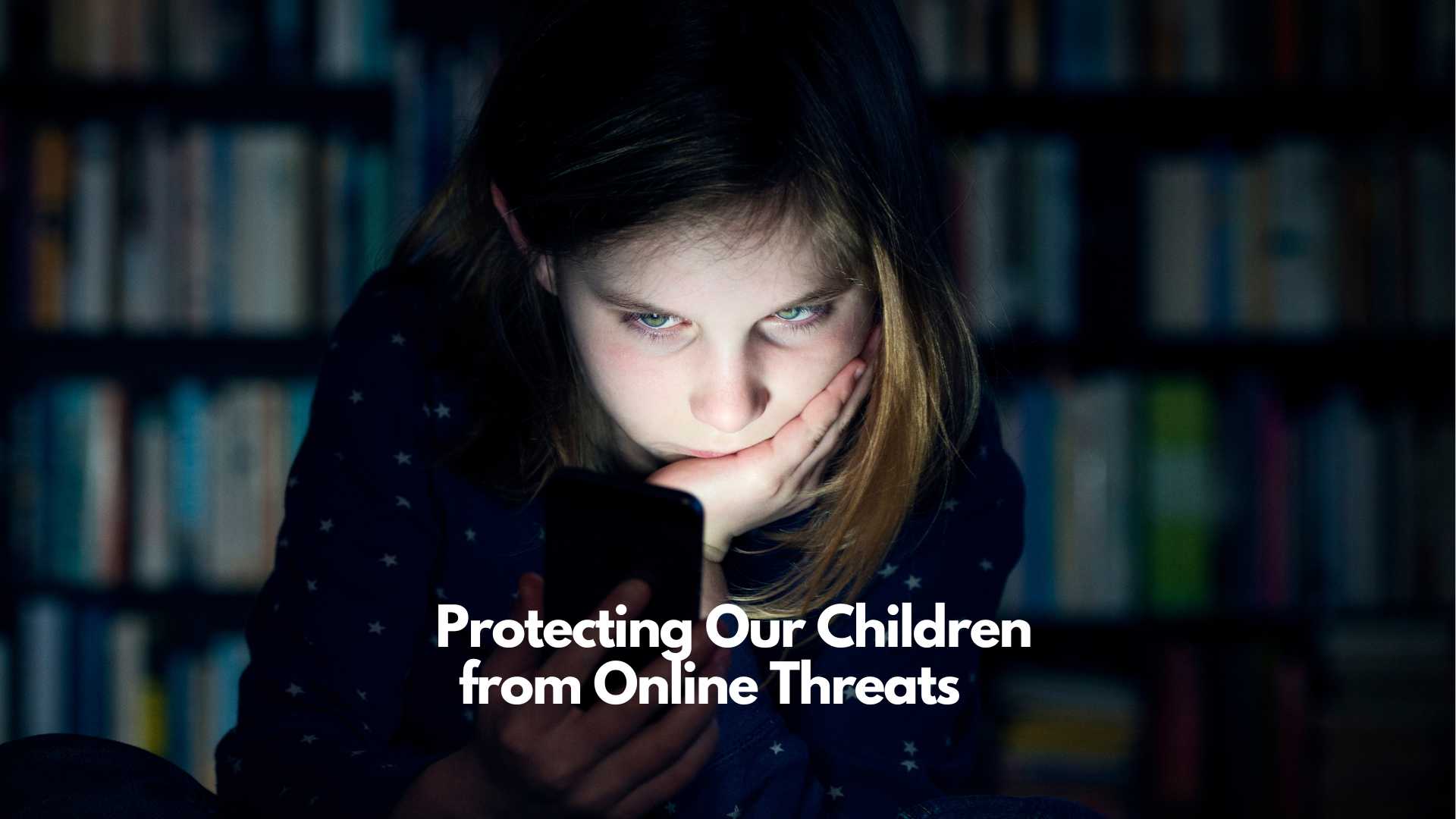We recently hosted a webinar addressing the pressing issue of online threats and their impact on our children. We strongly encourage every parent and guardian to educate themselves and actively engage in conversations about online safety with their children. A great way to begin is by exploring Cyber Safety Cop’s recent webinar, “Online Threats: How to Make Your Child More Resilient to Online Threats and What to Do If Your Child is a Victim.” This webinar provides a thorough examination of the various online dangers children face. By staying informed, maintaining open dialogues with your children about their online experiences, and utilizing the tools and information provided, you can significantly enhance your family’s ability to navigate and mitigate online threats.
In today’s digital age, children encounter a multitude of challenges online, with cyberbullying being particularly prevalent. The nature of online interactions, often anonymous, can foster an environment where kids feel emotionally detached, which can lead to harmful behavior. As parents and guardians, it’s essential to grasp the dynamics of the digital world and equip our children with the necessary tools to tackle these threats effectively. Below is an easy-to-understand guide drawn from the valuable insights shared in a recent webinar led by an experienced school resource officer.
One of the most effective ways to empower and protect our children from online threats is to educate them about the nature of the internet and the importance of maintaining digital etiquette. Encouraging kids to think before they click, post, or respond can prevent many instances of cyberbullying. By teaching them to treat online interactions with the same respect and consideration as face-to-face interactions, we help foster a safer online community. Additionally, educating them about the permanence of the digital footprint they leave behind can instill a sense of responsibility for their actions online.
Understanding the Reality of Cyberbullying
Despite what might appear as peaceful interactions online, cyberbullying is a significant and growing concern among young people. Particularly vulnerable are teenagers, who are still in the crucial stages of developing their brains, including the prefrontal cortex. This part of the brain plays a vital role in decision-making and empathy, capabilities that are not fully matured in teenagers. As a result, they may not always foresee the consequences of their actions, which can lead to impulsive and sometimes harmful behavior online.
The combination of ongoing brain development and the anonymity provided by digital platforms can create a perilous environment for young individuals. Here are a few key points every parent should understand about the dynamics of cyberbullying:
-
Impulsivity: Without the fully developed capacity to regulate impulses and consider long-term consequences, teenagers might post harmful comments or share inappropriate content without fully understanding the potential repercussions.
-
Peer Pressure: Teenagers are also highly susceptible to peer influence. The desire to fit in or be accepted by peers can prompt them to engage in negative behaviors, including participating in or initiating cyberbullying.
-
Anonymity and Detachment: Online, individuals often feel detached from real-world emotions and consequences. This detachment, facilitated by screen anonymity, makes it easier for some youths to engage in bullying without witnessing the immediate impact on the victim.
-
Lack of Empathy: Since they are still developing empathy, teenagers might not fully appreciate the emotional distress their actions can cause others when hidden behind a screen.
As parents, it’s crucial to proactively address these issues with our children. Engage in regular discussions about their online interactions, ask about the social dynamics they experience, and explore how they feel about the content they encounter. Educate them about the impact of cyberbullying and encourage them to think about the feelings of others before posting or sharing content online. By raising awareness and fostering open communication, we can help our children navigate their digital worlds more responsibly and empathetically.
Bridging the Digital and Real Worlds
For many children, the digital realm feels distinct from their real-life experiences. They might understand the consequences of their actions online intellectually, but emotionally, they are often pulled into behaving impulsively. To help them navigate these complex waters, maintaining open communication is key. By fostering a relationship built on trust and dialogue, we can guide our children to better handle their online interactions.
Encouraging regular check-ins about online activities can also play a crucial role in bridging the gap between the digital and real worlds. These conversations can provide insights into the type of interactions your child is having, the content they are exposed to, and how they feel about their online experiences. This ongoing dialogue not only helps you understand and guide your child’s online behavior but also reinforces that they can come to you with their concerns or when they need advice, strengthening their ability to deal with online issues maturely and responsibly.
Building Resilience
While we can’t control how others act, we can empower our children with the tools to deal with cyberbullying effectively:
-
The Airport Rule: Just as joking about security threats at an airport is off-limits, so should be making similar jokes online. Helping children understand the legal implications and the impact on their futures can encourage more thoughtful online behavior.
-
Don’t Engage with Bullies: Teach your children the power of ignoring cyberbullying. Not responding deprives the bully of the reaction they seek and can prevent further issues, including potential disciplinary actions at school.
-
Document Everything: Encourage your children to take screenshots of any cyberbullying incidents. These can be crucial for reporting the behavior to schools or even law enforcement if necessary.
-
Talk About It: Make sure they know how important it is to talk to a trusted adult about their online experiences. Sharing can reduce the feeling of isolation and help address the problem more effectively.
-
Report and Block: Educate your children on how to report inappropriate behaviors on platforms like Instagram, Snapchat, or TikTok and encourage them to block bullies to stop further communications.
Supporting Our Kids at Home
Creating a supportive home environment is vital. Encourage your children to approach you with their problems, reassuring them that your support and love are unconditional.
Knowing they can turn to you without fear of judgment or reprimand will empower them to seek help when they face online threats.
In addition to offering a listening ear, it’s beneficial to provide practical guidance on handling specific situations they may encounter online. For instance, teaching them how to block or report offensive content and users on social media platforms can give them a sense of control over their online environment. This empowerment, combined with your emotional support, will help build their resilience against online negativity and bullying.
As parents and guardians, you can take a proactive step towards enhancing your children’s digital literacy by enrolling them in our Digital Citizenship course. Tailored for students in 1st through 3rd grade and 4th through 8th grade, this program is specifically crafted to equip them with essential skills, providing a solid foundation to navigate the digital world responsibly.
By offering structured learning opportunities, this course supplements the ongoing dialogue at home, ensuring that children not only understand the theoretical aspects of online safety but also practice them in a practical, age-appropriate context. This comprehensive approach ensures their safety and fosters a positive online experience.
Collaborating with Schools
Partnering with your child’s school is often necessary to effectively address cyberbullying. Some schools are more proactive than others, and as parents, we may need to advocate for our children. This includes sharing evidence of cyberbullying and discussing potential strategies for intervention to ensure a supportive school environment. Bringing in resources like Cyber Safety Cop’s CYBER SAFETY ASSEMBLY FOR STUDENTS can significantly enhance these efforts. These assemblies address digital age challenges, empowering students with skills for informed decisions, privacy protection, and responsible online behavior. If you would like to invite Cyber Safety Cop to speak at your child’s school about this topic, you can get a quote here.
It’s important to establish clear lines of communication with school officials. Regularly attending school meetings and participating in forums can help you stay informed about the school’s policies and the measures they’re taking to combat cyberbullying. Engaging in these dialogues not only shows your commitment to your child’s well-being but also encourages a collaborative approach to fostering a safe online and offline community for all students.
Conclusion
Cyberbullying is a serious issue that requires our attentive guidance as parents. By understanding the challenges, encouraging open communication, and providing practical strategies, we can better prepare our children to face online threats. Your involvement is crucial in helping them navigate these digital challenges with confidence and resilience. Together, we can create a safer online environment for our children, helping them grow into responsible digital citizens.
As a reminder, don’t forget to check out our webinar titled “Online Threats: How to Make Your Child More Resilient to Online Threats and What to Do If Your Child is a Victim” This resource offers extensive insights and expert guidance, making it incredibly valuable for equipping you with the knowledge and tools needed to effectively support your child in the digital age. Join us to learn more about safeguarding your children against online threats and ensuring their healthy development in an increasingly digital world.







